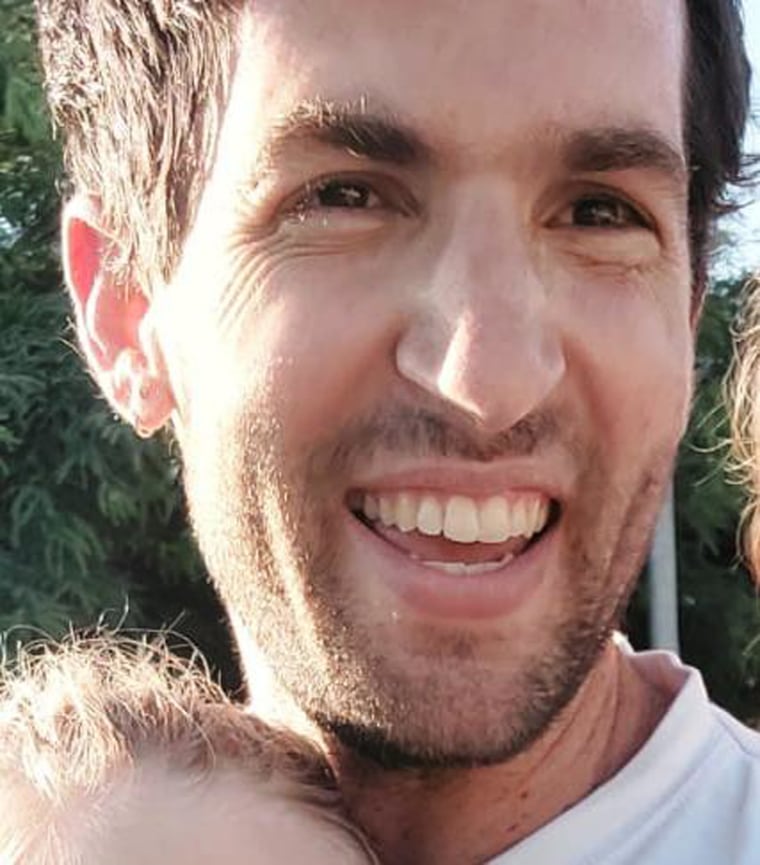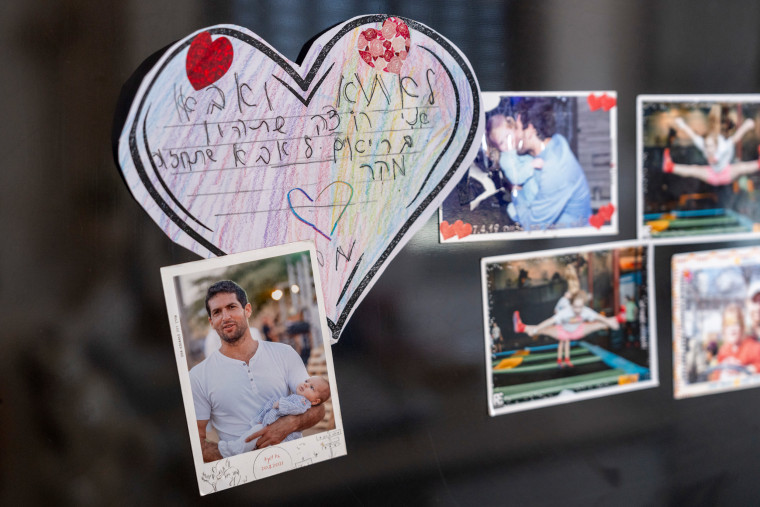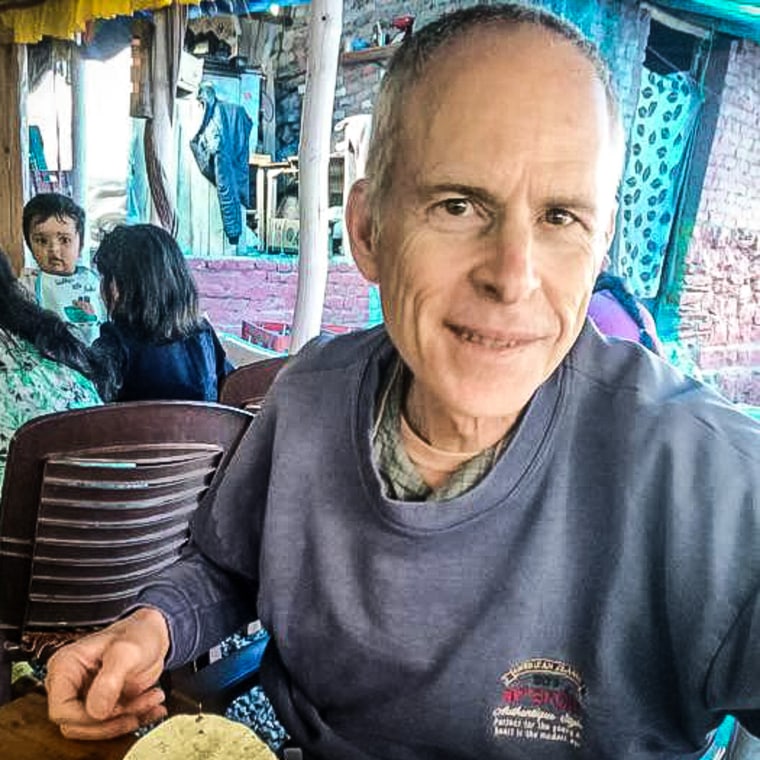JERUSALEM — Sagui Dekel-Chen, an American Israeli who refurbished old buses into mobile tech classrooms for underserved children, has not met his third daughter, who was born in southern Israel after he was taken hostage during Hamas’s Oct. 7, 2023, terrorist attack. His father, who says he’s been through a “living hell” for 15 months now, says he won’t believe the news of his son’s pending release until he’s actually returned home.
His father, Jonathan Dekel-Chen, told NBC News that as of early afternoon Thursday, he had yet to hear from anyone outside of the media that his son was scheduled to be freed in the first phase of the Israel-Hamas ceasefire deal.
“No one has spoken to me or to my family about it,” Dekel-Chen said. He last received proof that his son was still alive from hostages freed during a November deal, who told him they had seen him in tunnels under Gaza, he said.
According to a senior U.S. official who briefed reporters Wednesday on the details of the ceasefire deal, Sagui Dekel-Chen, 36, and fellow American Israeli Keith Siegel, 65, of Chapel Hill, North Carolina, are among more than 33 hostages expected to be released during the first phase of the agreement.

Dekel-Chen, a project manager for JNF-UK, a British charity that supports poorer parts of Israel, was kidnapped from kibbutz Nir Oz, where he grew up and was living with his wife, Avital, and their two small daughters, Bar and Galit. A third daughter, Shachar, was born two months after he was captured.
“It’s been a living hell,” Jonathan Dekel-Chen, 61, said when reflecting on the months of uncertainty.
The first stage of the ceasefire agreement will see the return of 94 of the remaining 251 captives seized during the Hamas cross-border attack. Another four captives previously held in Gaza will also be part of the deal.
“Hamas has never allowed visits by the Red Cross, the Red Crescent, or any other international organization, so there is no sure way to know what their condition is,” said Jonathan Dekel-Chen, who is originally from Bloomfield, Connecticut, but was living on the kibbutz at the time of the attack.

The small border community of Nir Oz was among those targeted by Hamas militants during the attack. The community of some 400 people remained under siege for nine hours, Jonathan Dekel-Chen recalled. Fifty-nine were killed and 79 kidnapped, of which 29 are still held in Gaza.
He called on the Israeli government to ratify the deal and for both the outgoing and the incoming U.S. administrations to pressure all sides to ensure that all the hostages, the living and the dead, are returned. He said the story is not over until everyone is home.
“Everyone in our family has the same goal. It is to get Sagui home, to have his three little girls run into his arms, the youngest of whom has never met him,” he said. “She knows him only as a poster on the wall.”
Eden Alexander, 21, of New Jersey, who was serving in the Israeli army at the time of his capture, is not expected to be released until the second phase of the deal. Israeli officials said they believe that the other dual-citizen Americans held by Hamas — Itay Chen, 19; Gad Haggai, 72; his wife, Judith Weinstein, 70; and Omer Neutra, 21 — are dead.

Keith Siegel, 65, originally of Chapel Hill, North Carolina, was taken from kibbutz Kfar Aza. He was last seen in a video released in April by Hamas.
In the video, the occupational therapist spoke directly to his family to say he is doing OK. Soon after, the couple’s two daughters, Ilan and Shir, shared a picture of them holding hands with their mother, Aviva Siegel, all wearing T-shirts with Keith Siegel’s picture and the caption, “BRING KEITH HOME NOW.”
Aviva Siegel, 63, was taken hostage on Oct. 7 and released the next month. She has since become a vocal advocate for the hostages, fighting to keep their plight in the public eye.
In September, she said she was determined to keep “shouting and screaming for the hostages to come home.”
“I have been talking about those tunnels,” Siegel told NBC News’ Lester Holt during a trip to New York at the start of the United Nations General Assembly in September.
“Keith and I nearly died in the tunnel because there was no oxygen, and I’ve been talking about it over and over and over — hard stories. But I want to just tell everybody we’re not going to stop,” she said in an interview alongside other people whose loved ones were also taken.
“We’re going to talk, and I’m going to tell all the hard stories,” she added.
Siegel recalled some of the conditions inside the vast network of tunnels underneath the Gaza Strip. She described hostages thrown to the ground on “filthy, dirty mattresses,” forbidden from speaking or moving, confined to dark spaces. She recounted the agony of being starved for “24 hours or even more.”
In October, Sagui Dekel-Chen’s wife, Avital, told NBC News that sending him daily WhatsApp messages had helped her find solace, even though she knew full well that he wouldn’t see them until he was returned to his family.
“Please come back home. Please hang in there a little longer,” Dekel-Chen wrote in one message.
Soon, she may finally get her wish.